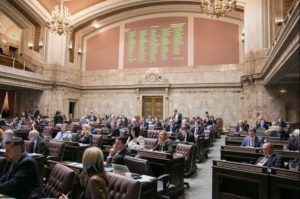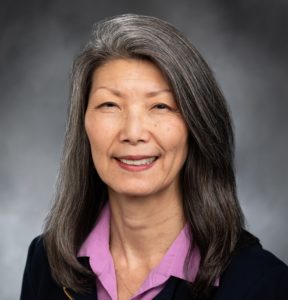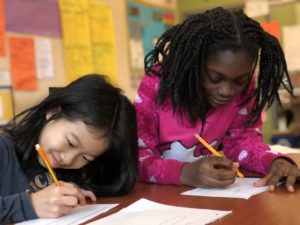2025-2027 Biennial Budget Summary
By League of Education Voters Policy Team
 In the 2025-2027 biennial budget compromise, all amounts are per biennium unless noted.
In the 2025-2027 biennial budget compromise, all amounts are per biennium unless noted.
Building a quality public education system from cradle to career.
By League of Education Voters Policy Team
 In the 2025-2027 biennial budget compromise, all amounts are per biennium unless noted.
In the 2025-2027 biennial budget compromise, all amounts are per biennium unless noted.
By Natalie So
Guest Blogger

Growing up, I often witnessed how a lack of financial knowledge could negatively impact people’s lives. This understanding deepened when I began volunteering with the Korean Adoptee Family Foundation (KORAFF), an organization dedicated to empowering Korean adoptee communities through education and advocacy. It was during my term serving as president of KORAFF that I truly grasped the transformative power of advocacy, no matter what age you are. I once believed that change could only be made from positions of power, but as I helped adoptees grow and flourish, I saw the significant impact that grassroots advocacy can have on making influential changes within society.
These experiences fueled my passion for addressing other systemic issues, such as the educational inequities within my school, where children with disabilities were often neglected due to a lack of funding and resources. Witnessing these challenges led me to passionately support House Bill 1915, which aims to make financial literacy education a mandatory part of the school curriculum. Read More
 In our podcast, we interview policymakers, partners, and thought leaders to spotlight education policies, research, and practices so that together we can create a brighter future for every Washington student.
In our podcast, we interview policymakers, partners, and thought leaders to spotlight education policies, research, and practices so that together we can create a brighter future for every Washington student.
In this episode, League of Education Voters Communications Director Arik Korman asks Representative Sharon Tomiko Santos (D-Seattle), Chair of the House Education Committee, how she envisions the legislature responding to special education needs from the community, what the next steps are for House Bill 1541, better known as the Opportunity Gap Bill, and what her vision is for improving education in Washington state.
Listen:
 The Legislature made significant changes to the K-12 education funding structures in 2017—infusing more than $7 billion in state money into the system over four years through House Bill 2242. As the fiscal impacts of the changes became clearer, legislators proposed a range of changes to address the concerns that districts have voiced around HB 2242.
The Legislature made significant changes to the K-12 education funding structures in 2017—infusing more than $7 billion in state money into the system over four years through House Bill 2242. As the fiscal impacts of the changes became clearer, legislators proposed a range of changes to address the concerns that districts have voiced around HB 2242.
As the legislature made changes in 2018 to their plan to fully fund education, League of Education Voters feels it is important that the changes should be focused on:
Direct investments based on student need. Any changes to the funding system should drive resources to districts based on the needs of their student populations.
Eliminate disparities between districts. Modifications made to the structures put in place in HB 2242 should address unintended impacts that created (and recreated) inequities between high-property value/low-poverty districts and low-property value/high-poverty districts.
Attracting & retaining educators. State funding formulas should ensure that districts across the state are provided enough resources to attract and retain a diverse educator workforce.
Increase transparency in funding system. Increased access to data on spending and student outcomes is essential to ensure the effectiveness and equity of the new systems and structures put into place.
Love what we do? Support our work
Want to find out the latest in education news in Washington? Subscribe to our newsletter
Want to learn more about League of Education Voters? Find out here